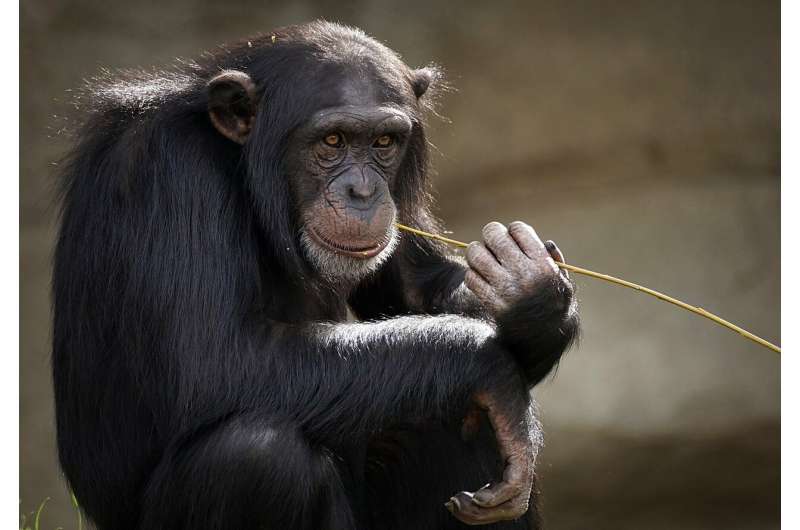This article has been reviewed according to Science X's editorial process and policies. Editors have highlighted the following attributes while ensuring the content's credibility:
fact-checked
trusted source
proofread
Study sheds new light on behavior of humans' closest relatives: Chimpanzees

A study by University of Stirling researchers has shed new light on the behavior of the closest living relatives of humans—chimpanzees. Researchers in the Division of Psychology found that chimpanzees will deploy strategies to maximize their chances of selection by potential cooperative partners.
The paper, "Chimpanzees engage in competitive altruism in a triadic ultimatum game," is published in the journal Scientific Reports.
In the study, two chimps (the proposers) were given grapes and offered the opportunity to share up to eight grapes with a third chimp (the responder). If the offer was rejected by the responder, both the responder and proposer received no grapes, meaning it was in the interests of the proposer to share a fair amount.
Two scenarios were created—one involving one proposer and one responder (dyadic conditions), the other involving two proposers and one responder (triadic conditions). As the game went on, researchers discovered that chimpanzees offered more grapes, even if they were not in competition with another chimpanzee.
Lead researcher Dr. Alejandro Sanchez Amaro said, "We found that chimpanzees were offering more as the study went on. We also found that in some circumstances the second proposers outcompeted first proposers by offering more than what was expected if they had acted randomly, or by simply offering the smallest possible reward.
"We believe that chimpanzees might consider how other chimpanzees' interactions affect their outcomes. That makes them engage in strategies to maximize their chances of being selected as cooperative partners.
"This research allows us to better understand how our closest relatives resolve social dilemmas and shows that, like humans, chimpanzees are sensitive to others' decisions and how those can affect their chances to benefit the most from social interactions."
The research was carried out at Leipzig Zoo by Dr. Alejandro Sanchez Amaro, working in collaboration with Dr. Daniel Haun and Dr. Luke Maurits of the Max Planck Institute for Evolutionary Anthropology in Leipzig, Germany.
More information: Alejandro Sánchez-Amaro et al, Chimpanzees engage in competitive altruism in a triadic ultimatum game, Scientific Reports (2024). DOI: 10.1038/s41598-024-53973-6
Provided by University of Stirling



















